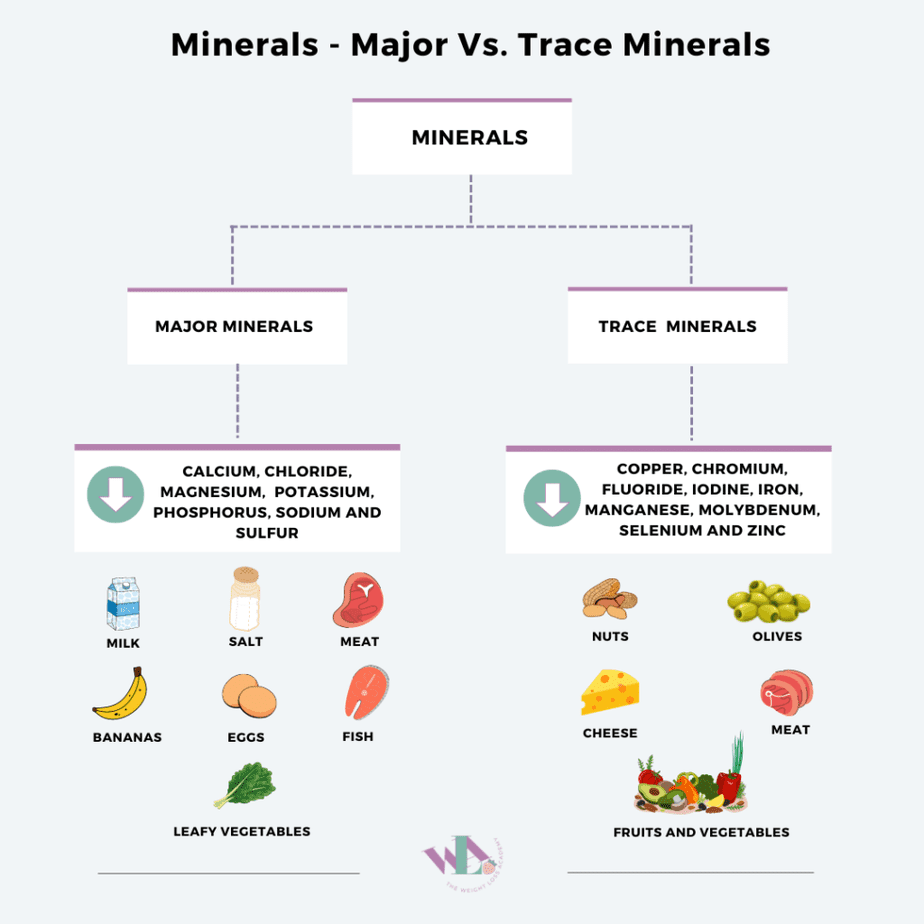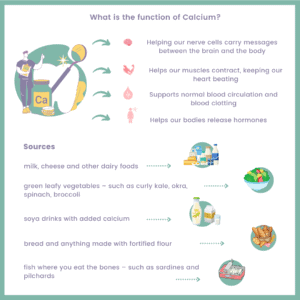
Minerals are inorganic elements that come from soil and water and are absorbed by plants or consumed by animals.
1️⃣6️⃣ There are 16 essential minerals, calcium, phosphorus, potassium, sulfur, sodium, chloride, magnesium, iron, zinc, copper, manganese, iodine, selenium, molybdenum, chromium and fluoride.
Minerals play important roles in the body and contribute to overall health by helping with the following:
⚖️ Maintaining blood pressure, fluid & electrolyte balance
🦴 Bone and teeth formation and health
❤️ Heart rhythm, muscle contraction and nerve transmission
Minerals can be classified as ‘major’ or ‘trace’ minerals.
Major Minerals – the major minerals, also sometimes referred to as macrominerals, include calcium, chloride, magnesium, potassium, phosphorus, sodium and sulphur.
⬆️ Although specific amounts differ, in general the body needs to take in more than 100 milligrams of each mineral. That is why they are classified as major. While some of the major minerals have their own independent functions, many of them work together to maintain health.
Trace Minerals – the trace minerals, also sometimes referred to as microminerals, include copper, chromium, fluoride, iodine, iron, manganese, molybdenum, selenium and zinc.
⬇️ All the trace minerals are grouped together because the body needs less than 100 milligrams of each every day. Although the body needs them in smaller amounts, that does not mean they are less important.
🍏🥩 Both major and trace minerals are found in all kinds of foods including fruits and vegetables, nuts and seeds, whole grains, meats and milk.
Let us know in the comments below if this helped you today.



